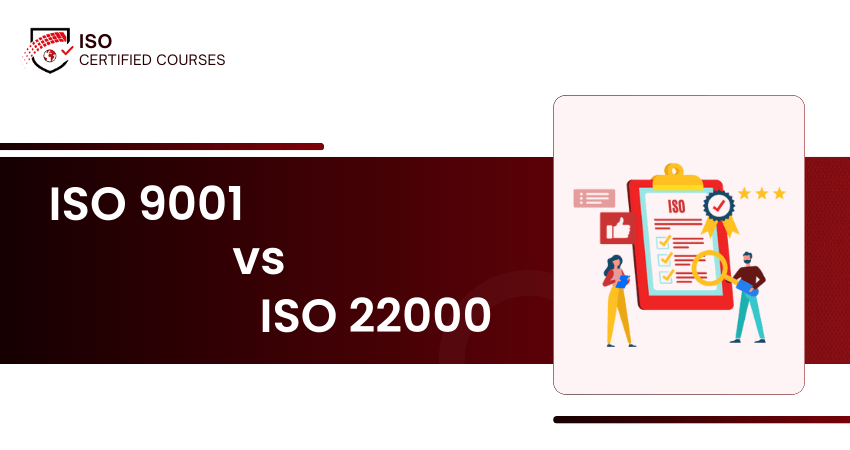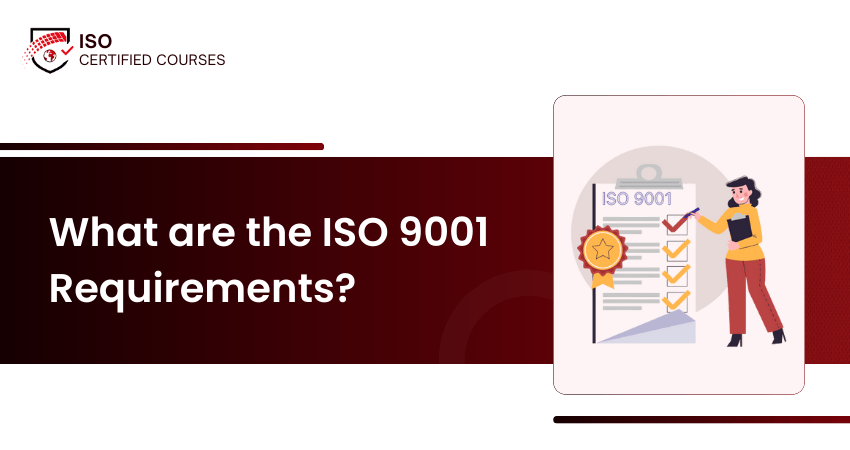ISO 21001 Lead Auditor Training Overview
The ISO 21001 Lead Auditor Course provides professionals with the skills to assess and improve educational institutions’ management systems. It is ideal for professionals who want to conduct audits aligned with ISO 21001. The course ensures that audits drive improvement in teaching quality, governance, and learner outcomes.
Key Topics Covered
- ISO 21001 Audit Process: Full audit cycle planning, execution, and follow-up.
- Clause Interpretation: In-depth understanding of standard clauses.
- Audit Techniques: Interviews, sampling, and nonconformity identification.
- Reporting Skills: Writing objective and evidence-based audit reports.
Course Benefits
- Lead with Confidence: Learn to guide audit teams and evaluate adherence to educational standards.
- Enhance Learning Quality: Support educational improvement and stakeholder satisfaction
- Build International Credentials: Gain a recognised qualification for global education roles
- Promote Sustainable Governance: Help institutions align with strategic quality goals
This course is ideal for professionals working in education or quality roles who are responsible for audits or regulatory assurance activities.
- Quality Managers
- Internal Auditors
- Lead Auditors
- ISO Consultants
- Regulatory Officers
- Educational Administrators
- Educators

ISO 21001 Lead Auditor Training Outline
Module 1: Introduction to ISO 21001
- Introduction
- Scope
- Terms and Definitions
Module 2: Educational Management
- What is Educational Management?
- Need of Educational Management
- Nature of Educational Management
- Principles of Educational Management
- Characteristics of Good Management
Module 3: Process of Educational Management
- Educational Management as a Process
- Planning
- Organising
- Directing
- Controlling
- Evaluating
Module 4: Management at Different Levels
- Characteristics of Institutional Plan
- Aims and Objectives of Institutional Planning
- Management at Elementary Level Education
- Management at Secondary Level Education
- Management at Higher Level Education
- Records, Lesson Plan, Laboratory, and Library
- Role of Head in School or College Activities
Module 5: SWOT Analysis
- Introduction to SWOT Analysis
- SWOT: Essential Tool for Strategic Planning
- Application of SWOT Analysis in Formulating Strategies
- Pros and Cons of Using SWOT in Strategic Planning
Module 6: Internal Audit
- What is an Internal Audit?
- Importance of Internal Audits
- Types of Internal Audit
- Internal Audit Vs External Audit
- Internal Audit Process
- 5 C’s
- Internal Auditor Responsibilities
Module 7: Internal Auditing of an Educational Institute
- Internal Audit Procedures
- Fund Balances
- Liabilities
- Assets
- Internal Auditor’s Role in Corporate Governance
Module 8: Context of the Organisation
- Organisation and Its Context
- Needs and Expectations of Interested Parties
- Scope of the Management System for Educational Organisations
- Educational Organisation Management System (EOMS)
Module 9: Leadership
- Leadership and Commitment
- General
- Focus on Learners and Other Beneficiaries
- Additional Requirements for Special Needs Education
- Policy
- Developing the Policy
- Communicating the Policy
- Organisational Roles, Responsibilities, and Authorities
Module 10: PDCA Approach
- What is the Plan-Do-Check-Act (PDCA) Cycle?
- PDCA Cycle to Assure Quality in Leadership Education
- Quality Improvement of Leadership Education Programme
- Continuous and Gradual Quality Improvement and Goal Attainment Level
Module 11: Risk Based Thinking
- Importance of Risk Based Thinking
- Threats and Opportunities
- Benefits of Risk-Based Thinking
- Technical Tools that will Help with Mitigating Risk
Module 12: Planning
- Actions to Address Risks and Opportunities
- Educational Organisation Objectives and Planning to Achieve Them
- Planning of Changes
Module 13: Support
- Resources
- General
- Human Resources
- Facilities
- Environment for the Operation of Educational Processes
- Monitoring and Measuring Resources
- Organisational Knowledge
- Competence
- Awareness
- Communication
- Communication Purposes
- Communication Arrangements
- Documented Information
- Creating and Updating
- Control of Documented Information
Module 14: Operation
- Operational Planning and Control
- Requirements for the Educational Products and Services
- Design and Development of the Educational Products and Services
- Control of Externally Provided Processes, Products, and Services
- Delivery of the Educational Products and Services
- Release of the Educational Products and Services
- Control of the Educational Nonconforming Outputs
Module 15: Measurement and Evaluation in Education
- Introduction to Measurement
- Types of Measurement
- Characteristics of Good Measurement Tool
- Nature of Educational Measurement and Evaluation
- Characteristics of Evaluation
- Evaluation from Educational Angle
- Measurement Methods
- Need for Measurement and Evaluation in Education
Module 16: Performance Evaluation
- Monitoring, Measurement, Analysis and Evaluation
- Satisfaction of Learners, Other Beneficiaries and Staff
- Other Monitoring and Measuring Needs
- Methods for Monitoring, Measurement, Analysis, and Evaluation
- Analysis and Evaluation
- Internal Audit
- Management Review
- Management Review Inputs
- Management Review Outputs
Module 17: On-Site Audit Process
- Audit Team Preparation Meeting
- Opening Meeting
- Orientation Tour
- Detailed Evaluation
- Management Interviews
- Worker Interviews
- Analysis of Findings
- Daily Wrap Up Meetings
- Closing Meeting
Module 18: Conduct Academic and Administrative Audit (AAA)
- Introduction to Academic and Administrative Audit
- Aim of Academic and Administrative Audit (AAA)
- Steps to Conduct an Academic and Administrative Audit (AAA)
Module 19: Audit Report
- Contents of an Audit Report
- Opinion in an Audit Report
- Emphasis of Matter Paragraph in an Audit Report
- Best Practices for Writing a Digestible Audit Report
Module 20: Improvement
- Nonconformity and Corrective Action
- Continual Improvement
- Opportunities for Improvement

What You’ll Learn in this Course
By the end of the Course, you will be able to:
- Plan, lead, and report on ISO 21001 audits
- Evaluate EOMS performance using structured methods
- Assess alignment with learner-focused objectives and policies
- Communicate findings and support corrective action
- Drive continuous improvement across educational systems

What’s Included
ISO 21001 Lead Auditor Examination
World-Class Training Sessions from Experienced Instructors
ISO 21001 Lead Auditor Certificate
Digital Delegate Pack
ISO 21001 Lead Auditor Training Exam Details
To achieve the ISO 21001 Lead Auditor Training, candidates will need to sit for an examination. The exam format is as follows:
Question Type: Multiple Choice
Total Questions: 30
Total Marks: 30 Marks
Pass Mark: 50%, or 15/30 Marks
Duration: 40 Minutes
Open Book/Closed Book: Closed Book

Individual Training
Boost your expertise with our Individual Training, tailored for professionals seeking ISO knowledge at their own pace. Learn core standards, industry best practices, and implementation skills from certified experts.
Corporate Training
Empower your teams with our Corporate Training solutions, designed to align ISO standards with your organisational goals. Ensure compliance, boost efficiency, and build a culture of continuous improvement across your workforce.
Boost Your Career with ISO Training
Average salary boost for professionals with our ISO Training in compliance and standards roles
85%Learners begin roles in quality assurance, compliance, or audit after completing our ISO Courses
90% Compliance Readiness
Organisations report enhanced operational efficiency and preparedness following our ISO Training for employees
-
Manufacturing and Production
-
Energy and Utilities
-
Construction and Infrastructure
-
Waste Management and Recycling
-
Information Technology and Information Security
-
Public Sector and Environmental Services
Our Immersive Learning Solution
Hands-On Learning Experience
Engage with real-world scenarios, interactive tasks, and simulations that bridge theory and practical application.
Expert-Led Delivery
Learn from seasoned professionals with deep industry experience and insight into ISO standards and beyond.
Flexible Learning Formats
Choose from Online Instructor-Led, Online Self-Paced, or Classroom sessions designed to suit your pace and preferences.
Customised Content
Training aligned with your sector, goals, and challenges, ensuring relevant, targeted learning every time.
Empowering Growth with Tailored Training Solutions
We help organisations equip their teams with the skills and knowledge needed to consistently meet industry standards. Our corporate training is designed around your specific operational goals, ensuring alignment with the ISO framework.
With a strong focus on real-world application and measurable outcomes, each session drives practical capability and lasting improvement. By fostering standard-driven performance across all levels, we empower your workforce to contribute confidently and consistently to organisational success.
- Delivered by industry-certified trainers with hands-on experience
- Custom content aligned to your sector, standards, and strategy
- Flexible formats, including on-site, virtual, or blended, to suit your teams
On-Demand Access
Custom and Scalable Solutions
24x7 Support












Feedback From Our Clients
The ISO 9001 Internal Auditor Training gave me practical insight into quality systems and how to apply audit techniques effectively. The sessions were clear and approachable, even without prior auditing experience. I now feel confident reviewing documentation, identifying nonconformities, and contributing to continuous improvement. The real-world examples and audit scenarios helped me understand the practical side of compliance and how it fits into our daily operations.
Completing the ISO 45001 Foundation Training provided me with a solid understanding of occupational health and safety standards. The training clarified legal requirements, hazard identification, and risk control measures. I’ve applied this knowledge to improve our incident response protocols and reinforce safety culture within the team. It’s also made me more effective at communicating compliance expectations and supporting ongoing H&S initiatives.
The ISO 22301 Foundation Training helped deepen my knowledge of business continuity planning and risk preparedness. The course content was practical and focused on real implementation challenges, which I could immediately relate to my role. I now play a more active part in reviewing continuity plans and coordinating recovery strategies. The training has improved how we manage operational risks and strengthened our overall resilience.
I registered my team in the ISO 9001 Lead Implementer Training, and the improvements were visible right away. The training gave us the tools to standardise workflows, enhance documentation, and build a consistent quality management system. The team has taken ownership of processes and is now more proactive in identifying areas for improvement. It’s significantly enhanced how we align with best practices and deliver results with greater reliability.
Our team participated in the ISO 45001 Lead Auditor Training to reinforce our internal safety and compliance framework. The training not only improved our auditing skills but also helped us critically assess our workplace health and safety practices. We’ve since implemented stronger controls and improved reporting structures. The shift in awareness and engagement has been very positive, especially in high-risk areas.
Frequently Asked Questions
What is the ISO 21001 Lead Auditor Course about?
This course trains professionals to conduct, lead, and report audits of Educational Organisation Management Systems. It helps institutions align with ISO 21001 and achieve measurable improvement in education quality and operations.
Do I need any prior knowledge to join this course?
No prior experience is required. A basic understanding of ISO 21001 and auditing concepts is recommended. Completing a Foundation course or having work experience in educational quality assurance will enhance your learning.
Is this course suitable for all educational institutions?
Yes, the course applies to schools, colleges, universities, coaching centres, and training providers. ISO 21001 is scalable and suitable for public, private, hybrid, nonprofit, and community-based learning environments.
Is the ISO 21001 Lead Auditor Course globally recognised?
Yes, this course is aligned with international standards. It equips learners with globally accepted auditing skills for education, enhancing their professional profile and cross-border career potential.
Will I learn how to conduct audits independently?
Yes, the course prepares you to plan, execute, and follow up audits on your own. It includes practical examples and simulations to build confidence in handling audits from start to finish.








































